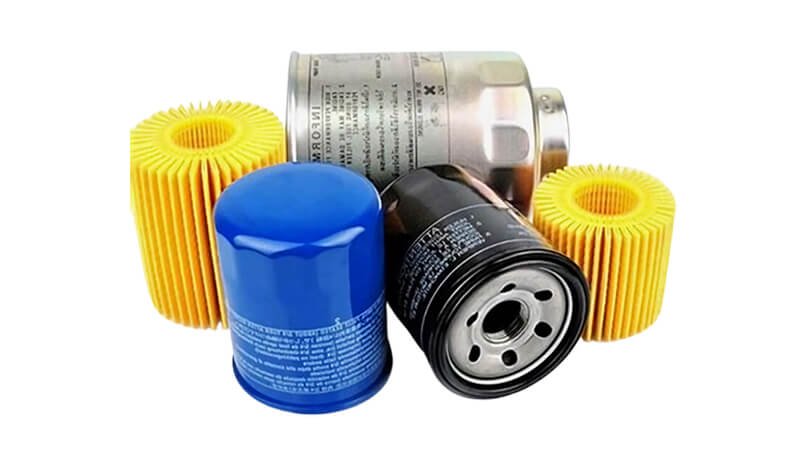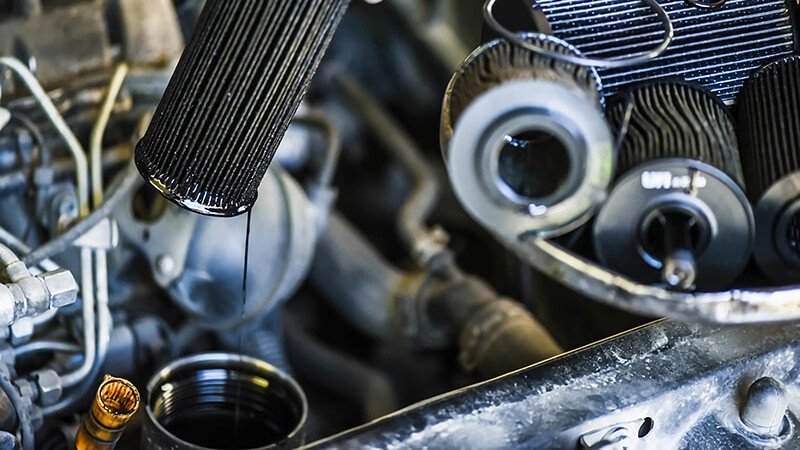Choosing the right oil and filter for your car is crucial for maintaining optimal engine performance. With so many options available, how do you know what’s best for your vehicle? In this guide, we will help you make an informed decision by breaking down key factors to consider.
Selecting the right oil and filter ensures your engine runs smoothly and lasts longer. From understanding which oil is compatible with your car to choosing the best oil filter, we’ll cover all the factors you need to consider to make the best choice for your vehicle.
Now that we've covered the importance of selecting the right oil, let's dive into how you can choose the perfect oil filter. The right filter is just as important as the oil itself for your car’s engine health.

How do I know what oil and filter my car needs?
Selecting the correct oil and filter for your car may seem confusing at first, but once you understand the basic requirements, it becomes easier. Your vehicle’s manual holds the key to identifying the right specifications for oil and oil filters.
To find the right oil and filter for your car, refer to your vehicle's manual. It contains the manufacturer’s recommendations on oil type1, viscosity2, and the proper filter specifications3. Let’s explore how to read these recommendations and apply them to your car's needs.
The first step in selecting the right oil and filter is understanding the specifications laid out by your car’s manufacturer. Your owner’s manual will provide the following:
Oil Type
Cars require different types of oil depending on their engine design. The most common oil types are conventional, synthetic, and semi-synthetic. Synthetic oils are often recommended for high-performance engines, while conventional oils are sufficient for everyday cars. The manual will tell you what type of oil is best suited for your engine.
| Oil Type | Characteristics | Best for |
|---|---|---|
| Conventional | Basic oil, derived from crude oil. | Everyday cars, low cost. |
| Synthetic | Engineered for enhanced performance. | High-performance engines. |
| Semi-Synthetic | Mix of conventional and synthetic oil. | Cost-effective option with good performance. |
Viscosity Rating
The viscosity rating, often written as “5W-30” or “10W-40”, refers to the thickness of the oil. A lower number indicates thinner oil that flows more easily in cold temperatures, while a higher number means thicker oil for higher temperatures. It's important to select oil with the correct viscosity to ensure optimal engine protection across different climates.
| Viscosity Rating | Temperature Range (°C) | Common Applications |
|---|---|---|
| 5W-30 | -20 to 30°C (cold to moderate) | Standard vehicles, cold climates |
| 10W-40 | -10 to 40°C (moderate to hot) | High-performance or older cars |
Oil Filter Specification
Just as important as the type of oil is the oil filter. Your manual will recommend a specific type of oil filter for your car, including its size, capacity, and design. Oil filters vary by brand and quality, but the right one ensures proper filtration, prevents contaminants from damaging the engine, and maintains oil flow.
By matching the recommendations in the manual, you ensure that both the oil and filter perform at their best, promoting engine longevity and efficiency.

Does it really matter what oil filter I use?
Not all oil filters are created equal. The oil filter plays a crucial role in removing contaminants from the engine oil, so choosing the right one is essential for your engine’s health and longevity.
Yes, it does matter which oil filter you use. A good oil filter ensures contaminants are effectively removed from the engine oil, maintaining optimal engine performance and preventing costly repairs. Let’s explore why the oil filter is so important.
The oil filter’s primary function is to trap dirt, debris, and other harmful particles that can cause engine damage. If you use a poor-quality oil filter, these contaminants can bypass the filter and flow through the engine, leading to wear and reduced performance. Here’s why the oil filter matters:
Filtration Efficiency4
A high-quality oil filter provides better filtration, ensuring contaminants are effectively removed from the oil. This means that cleaner oil flows through the engine, keeping components in optimal condition. Low-quality filters may fail to trap all contaminants, which can lead to sludge buildup in the engine.
| Filter Type | Filtration Efficiency (%) | Ideal Use Case |
|---|---|---|
| High-Quality | 99%+ | Performance vehicles, high-mileage cars |
| Standard | 80-90% | Everyday commuting vehicles |
Capacity and Flow Rate
Oil filters also vary in terms of their capacity to hold contaminants and their flow rate. An oil filter with a higher capacity can hold more dirt before needing replacement, which is beneficial for high-mileage cars. Additionally, the flow rate ensures that oil circulates efficiently without being obstructed by the filter, which is crucial for maintaining proper engine lubrication.
| Feature | High Capacity Filters | Low Capacity Filters |
|---|---|---|
| Dirt Holding Capacity | Larger capacity, longer life | Smaller capacity, more frequent changes |
| Flow Rate | Consistent flow at high speeds | May cause engine strain at high speeds |
Durability
Some oil filters are built with stronger materials that can handle higher pressures and extended service intervals. These filters are particularly useful for high-performance vehicles or drivers who go long periods between oil changes. A durable filter ensures consistent performance and protects the engine from potential damage.
Choosing a good oil filter is just as important as selecting the right oil. It ensures your engine remains free of contaminants, runs smoothly, and lasts longer.

What type of oil filter is best?
With so many types of oil filters available, it’s important to know which one is the best for your vehicle. Each type of filter is designed to meet different performance needs.
The best oil filter depends on your vehicle's requirements and your driving habits. Whether you need a basic filter or a high-performance option, it’s essential to choose one that matches your engine's needs. Let’s look at the different types of oil filters and their benefits.
There are three main types of oil filters available: mechanical5, cartridge6, and spin-on7. Each type offers different benefits, depending on your car's engine type and performance needs.
Mechanical Oil Filters
Mechanical oil filters are commonly used in older vehicles. They are relatively simple in design, containing a metal housing and a filtering medium. Mechanical filters tend to have lower filtration efficiency compared to newer designs but are still adequate for older engines that don’t require high filtration.
| Filter Type | Advantages | Disadvantages |
|---|---|---|
| Mechanical | Affordable, simple to replace | Less efficient, less filtration capacity |
Cartridge Oil Filters
Cartridge oil filters are commonly found in modern cars, especially European models. They consist of a replaceable filter element inside a plastic or metal housing. These filters are known for their superior filtration capabilities, with a design that allows for easy replacement of the filter element without changing the housing. Cartridge filters are ideal for maintaining engine cleanliness and performance over long periods.
| Filter Type | Advantages | Disadvantages |
|---|---|---|
| Cartridge | Superior filtration, easy replacement | Slightly more expensive, may require professional installation |
Spin-On Oil Filters
Spin-on oil filters are the most common and widely used type. They consist of a single piece, including both the filter and the housing. The convenience of a spin-on filter makes it popular among DIY mechanics because of its simple installation and replacement process. These filters offer excellent filtration and are available for a wide range of vehicles.
| Filter Type | Advantages | Disadvantages |
|---|---|---|
| Spin-On | Easy installation, widely available | May require more frequent changes in high-demand situations |
Each type of oil filter has its own advantages, but the choice depends on the type of engine, the manufacturer’s specifications, and the driving conditions. Choosing the correct oil filter ensures your vehicle performs at its best.

Is it best to use OEM oil filters?
When it comes to oil filters, one question many car owners ask is whether to choose an OEM8 (Original Equipment Manufacturer) filter or an aftermarket9 one. Let’s take a look at the benefits of using OEM filters.
Yes, using OEM oil filters is often the best option. OEM filters are designed specifically for your vehicle’s make and model, ensuring perfect compatibility and performance. Here’s why OEM oil filters are a great choice.
OEM oil filters are designed and manufactured by the same company that produces your vehicle, ensuring a perfect fit and high-quality performance. Here's why choosing OEM oil filters is beneficial:
Compatibility10
OEM filters are engineered to match your vehicle’s exact specifications. This means they provide the perfect fit and optimal performance for your engine. Aftermarket filters may not always offer the same level of compatibility, which could lead to less effective filtration and potential engine issues.
| Factor | OEM Oil Filters | Aftermarket Oil Filters |
|---|---|---|
| Compatibility | Perfect fit, tailored to vehicle | May not be perfectly compatible |
| Quality Assurance | High-quality, rigorously tested | Varies by brand and manufacturer |
Quality Assurance
OEM oil filters undergo rigorous testing to meet the manufacturer’s standards for performance and durability. This ensures that the filter can handle the demands of your engine, whether it's during long trips, high-speed driving, or harsh weather conditions.
| Feature | OEM Oil Filters | Aftermarket Oil Filters |
|---|---|---|
| Durability | Designed for long-term use | Varies depending on the brand |
| Performance | Consistent and reliable | Inconsistent performance |
Reliability
By choosing an OEM oil filter, you’re ensuring that you’re using a product that has been specifically tested for your vehicle. This can help reduce the chances of issues like oil leaks, poor filtration, or premature wear that could occur with inferior aftermarket options.
While aftermarket filters may be cheaper, they often don't match the quality or fit of OEM filters. Using an OEM filter ensures your vehicle gets the best protection and performance.

Conclusion
Choosing the right oil and filter for your vehicle is essential for engine performance and longevity. By understanding the specifications in your car’s manual, recognizing the importance of high-quality filters, and selecting the correct type, you can ensure your engine runs smoothly for years. Whether you opt for OEM filters11 or aftermarket options, remember that quality matters. At Runex Auto, we provide high-performance filters that meet the highest standards of quality, ensuring your vehicle stays in top condition.
If you are looking for OEM oil filter, do not hesitate to reach out to us.
-
Provides detailed information about oil types and how they influence vehicle performance and efficiency. ↩
-
Explains how viscosity affects oil flow and engine performance, helping you choose the right oil for your car. ↩
-
Helps understand the necessary specifications for choosing the right oil filter for your vehicle. ↩
-
Explains the importance of filtration efficiency in oil filters and its impact on engine health. ↩
-
Explains the function and use cases of mechanical oil filters in older vehicles. ↩
-
Provides insight into cartridge oil filters and their advantages for modern engines. ↩
-
Details the benefits of spin-on oil filters, commonly used in modern vehicles. ↩
-
Explains the advantages of OEM oil filters over aftermarket options for vehicle performance. ↩
-
Provides an overview of aftermarket oil filters and their potential benefits and drawbacks. ↩
-
Details the importance of compatibility between oil filters and vehicles for optimal engine performance. ↩
-
Know more details about OEM oil filter here from Runex Auto. ↩













